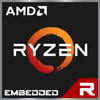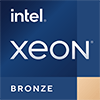
Intel Core i7-4810MQ Benchmark, Test and specs
Last updated:
The Intel Core i7-4810MQ is a 4 core processor. It can handle 8 threads simultaneously and was introduced in Q4/2013. The Intel Core i7-4810MQ is based on the 4. generation of the Intel Core i7 series and requires a mainboard with the socket PGA 946. The Intel Core i7-4810MQ scores 856 points with one CPU core in the Geekbench 5 benchmark. When using all CPU cores, the result is 3,032 points.

| Name: | Intel Core i7-4810MQ |
|---|---|
| Family: | Intel Core i7 (298) |
| CPU group: | Intel Core i 4000M/4000H (38) |
| Architecture: | Haswell H |
| Segment: | Mobile |
| Generation: | 4 |
| Predecessor: | -- |
| Successor: | -- |
CPU Cores and Base Frequency
The 4 CPU cores of the Intel Core i7-4810MQ clock with 2.80 GHz (3.80 GHz). The number of CPU cores and the clock frequency of the processor are largely responsible for the overall performance.
| CPU Cores / Threads: | 4 / 8 |
|---|---|
| Core architecture: | normal |
| Cores: | 4x |
| Hyperthreading / SMT: | Yes |
|---|---|
| Overclocking: | No |
| Frequency: | 2.80 GHz |
| Turbo Frequency (1 Core): | 3.80 GHz |
| Turbo Frequency (4 Cores): | 3.70 GHz |
Internal Graphics
With the Intel HD Graphics 4600, the Intel Core i7-4810MQ has an build in graphic solution. It has 20 SM processors, which have a total of 160 texture shaders. The iGPU not only enables games, but also significantly accelerates video playback.
| GPU name: | Intel HD Graphics 4600 |
|---|---|
| GPU frequency: | 0.40 GHz |
| GPU (Turbo): | 1.30 GHz |
| Compute units: | 20 |
| Shader: | 160 |
| Hardware Raytracing: | No |
| Release date: | Q2/2013 |
| Max. displays: | 3 |
|---|---|
| Generation: | 7.5 |
| Direct X: | 11.1 |
| Technology: | 22 nm |
| Max. GPU Memory: | 2 GB |
| Frame Generation: | No |
Hardware codec support
Processors that have an integrated graphics can play videos faster and more efficiently. This can have a positive effect on the battery life of notebooks, for example.
| h265 / HEVC (8 bit): | No |
|---|---|
| h265 / HEVC (10 bit): | No |
| h264: | Decode / Encode |
| VP8: | No |
| VP9: | No |
| AV1: | No |
|---|---|
| AVC: | Decode / Encode |
| VC-1: | Decode |
| JPEG: | Decode |
Memory & PCIeThe Intel Core i7-4810MQ supports up to 32 GB memory in up to 2 (Dual Channel) memory channels. This results in a maximum memory bandwidth of 25.6 GB/s. |
|
| Memory type: | Memory bandwidth: |
|---|---|
| DDR3L-1600 | 25.6 GB/s |
| Max. Memory: | 32 GB |
| Memory channels: | 2 (Dual Channel) |
| ECC: | No |
| PCIe: | 3.0 x 16 |
| PCIe Bandwidth: | 15.8 GB/s |
Thermal ManagementWith the TDP, the processor manufacturer specifies the cooling solution required for the processor. The Intel Core i7-4810MQ has a TDP of 47 W. |
|
|---|---|
| TDP (PL1 / PBP): | 47 W |
| TDP (PL2): | -- |
| TDP up: | -- |
| TDP down: | -- |
| Tjunction max.: | -- |
Technical details
The Intel Core i7-4810MQ has a 6.00 MB large cache. The processor is manufactured in 22 nm. Modern production increases the efficiency of the processor.
| Technology: | 22 nm |
|---|---|
| Chip design: | Monolithic |
| Socket: | PGA 946 |
| L2-Cache: | -- |
| L3-Cache: | 6.00 MB |
| AES-NI: | Yes |
| Operating systems: | Windows 10, Linux |
| Virtualization: | VT-x, VT-x EPT, VT-d |
|---|---|
| Instruction set (ISA): | x86-64 (64 bit) |
| ISA extensions: | SSE4.1, SSE4.2, AVX2 |
| Release date: | Q4/2013 |
| Release price: | -- |
| Part Number: | -- |
| Documents: | Technical data sheet |
Rate this processor
Benchmark results

The benchmark results for the Intel Core i7-4810MQ have been carefully checked by us. We only publish benchmark results that have been created by us or that have been submitted by a visitor and then checked by a team member. All results are based on and fullfill our benchmark guidelines.
Geekbench 5, 64bit (Single-Core)
Geekbench 5 is a cross plattform benchmark that heavily uses the systems memory. A fast memory will push the result a lot. The single-core test only uses one CPU core, the amount of cores or hyperthreading ability doesn't count.

|
AMD Ryzen Embedded R1606G
2C 4T @ 3.50 GHz |
||

|
Intel Core i5-8400T
6C 6T @ 3.30 GHz |
||

|
AMD Ryzen Embedded V1780B
4C 8T @ 3.60 GHz |
||
|
|
Intel Core i7-4810MQ
4C 8T @ 3.80 GHz |
||

|
Intel Xeon Silver 4116
12C 24T @ 3.00 GHz |
||

|
AMD Ryzen 5 PRO 3350GE
4C 4T @ 3.90 GHz |
||

|
AMD Ryzen 3 PRO 2200G
4C 4T @ 3.70 GHz |
||
Geekbench 5, 64bit (Multi-Core)
Geekbench 5 is a cross plattform benchmark that heavily uses the systems memory. A fast memory will push the result a lot. The multi-core test involves all CPU cores and taks a big advantage of hyperthreading.

|
Intel Core i7-3720QM
4C 8T @ 2.60 GHz |
||

|
Intel Xeon Bronze 3204
6C 6T @ 1.90 GHz |
||

|
AMD FX-9370
8C 8T @ 4.70 GHz |
||
|
|
Intel Core i7-4810MQ
4C 8T @ 3.70 GHz |
||

|
Qualcomm Snapdragon 780G
8C 8T @ 2.40 GHz |
||

|
Intel Xeon W-2102
4C 4T @ 2.90 GHz |
||

|
Intel Core i5-4690S
4C 4T @ 3.50 GHz |
||
Geekbench 6 (Single-Core)
Geekbench 6 is a benchmark for modern computers, notebooks and smartphones. What is new is an optimized utilization of newer CPU architectures, e.g. based on the big.LITTLE concept and combining CPU cores of different sizes. The single-core benchmark only evaluates the performance of the fastest CPU core, the number of CPU cores in a processor is irrelevant here.

|
Intel Core i7-6600U
2C 4T @ 3.40 GHz |
||

|
Intel Core i7-6650U
2C 4T @ 3.40 GHz |
||

|
Intel Xeon E5-2687W v3
10C 20T @ 3.50 GHz |
||
|
|
Intel Core i7-4810MQ
4C 8T @ 3.80 GHz |
||

|
Intel Core i7-4940MX
4C 8T @ 3.90 GHz |
||

|
AMD Ryzen 3 PRO 2200G
4C 4T @ 3.70 GHz |
||

|
AMD Ryzen 3 2200G
4C 4T @ 3.70 GHz |
||
Geekbench 6 (Multi-Core)
Geekbench 6 is a benchmark for modern computers, notebooks and smartphones. What is new is an optimized utilization of newer CPU architectures, e.g. based on the big.LITTLE concept and combining CPU cores of different sizes. The multi-core benchmark evaluates the performance of all of the processor's CPU cores. Virtual thread improvements such as AMD SMT or Intel's Hyper-Threading have a positive impact on the benchmark result.

|
Intel Core i5-7400
4C 4T @ 3.30 GHz |
||

|
Google Tensor G2
8C 8T @ 2.85 GHz |
||

|
Intel Core i7-5700HQ
4C 8T @ 3.20 GHz |
||
|
|
Intel Core i7-4810MQ
4C 8T @ 3.70 GHz |
||

|
Samsung Exynos 2100
8C 8T @ 2.90 GHz |
||

|
Intel Core i5-8365U
4C 8T @ 2.60 GHz |
||

|
Intel Core i5-7500T
4C 4T @ 3.10 GHz |
||
Cinebench R20 (Multi-Core)
Cinebench R20 is the successor of Cinebench R15 and is also based on the Cinema 4 Suite. Cinema 4 is a worldwide used software to create 3D forms. The multi-core test involves all CPU cores and taks a big advantage of hyperthreading.

|
AMD Ryzen 5 3500U
4C 8T @ 3.00 GHz |
||

|
AMD Ryzen 3 3200G
4C 4T @ 3.80 GHz |
||

|
AMD Ryzen 3 PRO 3200G
4C 4T @ 3.80 GHz |
||
|
|
Intel Core i7-4810MQ
4C 8T @ 3.70 GHz |
||

|
Intel Core i5-4670K
4C 4T @ 3.60 GHz |
||

|
Intel Xeon E5-1620 v2
4C 8T @ 3.90 GHz |
||

|
Intel Core i3-8100
4C 4T @ 3.60 GHz |
||
iGPU - FP32 Performance (Single-precision GFLOPS)
The theoretical computing performance of the internal graphics unit of the processor with simple accuracy (32 bit) in GFLOPS. GFLOPS indicates how many billion floating point operations the iGPU can perform per second.

|
Intel Core i7-8750H
Intel UHD Graphics 630 @ 1.10 GHz |
||

|
Intel Core i5-10210Y
Intel UHD Graphics (Comet Lake) @ 1.05 GHz |
||

|
Intel Core i5-10310Y
Intel UHD Graphics (Comet Lake) @ 1.05 GHz |
||
|
|
Intel Core i7-4810MQ
Intel HD Graphics 4600 @ 1.30 GHz |
||

|
Intel Core i7-4910MQ
Intel HD Graphics 4600 @ 1.30 GHz |
||

|
Intel Core i7-4610M
Intel HD Graphics 4600 @ 1.30 GHz |
||

|
Intel Xeon E3-1285 v3
Intel HD Graphics P4700 @ 1.30 GHz |
||
Estimated results for PassMark CPU Mark
Some of the CPUs listed below have been benchmarked by CPU-monkey. However the majority of CPUs have not been tested and the results have been estimated by a CPU-monkey’s secret proprietary formula. As such they do not accurately reflect the actual Passmark CPU mark values and are not endorsed by PassMark Software Pty Ltd.

|
Intel Core i5-8265U
4C 8T @ 2.30 GHz |
||

|
AMD EPYC Embedded 3101
4C 4T @ 2.10 GHz |
||

|
Intel Processor N97
4C 4T @ 3.40 GHz |
||
|
|
Intel Core i7-4810MQ
4C 8T @ 3.70 GHz |
||

|
Intel Core i7-5700HQ
4C 8T @ 3.20 GHz |
||

|
Intel Core i5-6600
4C 4T @ 3.60 GHz |
||

|
Intel Core i5-7500
4C 4T @ 3.60 GHz |
||
Blender 2.81 (bmw27)
Blender is a free 3D graphics software for rendering (creating) 3D bodies, which can also be textured and animated in the software. The Blender benchmark creates predefined scenes and measures the time (s) required for the entire scene. The shorter the time required, the better. We selected bmw27 as the benchmark scene.

|
Intel Core i7-8550U
4C 8T @ 2.40 GHz |
||

|
Intel Core i5-3570K
4C 4T @ 3.80 GHz |
||

|
Intel Core i5-4590
4C 4T @ 3.50 GHz |
||
|
|
Intel Core i7-4810MQ
4C 8T @ 3.70 GHz |
||

|
AMD FX-8350
8C 8T @ 4.10 GHz |
||

|
Intel Core i5-4570
4C 4T @ 3.40 GHz |
||

|
Intel Core i7-8650U
4C 8T @ 2.60 GHz |
||
CPU-Z Benchmark 17 (Multi-Core)
The CPU-Z benchmark measures a processor's performance by measuring the time it takes the system to complete all benchmark calculations. The faster the benchmark is completed, the higher the score.

|
Intel Core i5-6600K
4C 4T @ 3.50 GHz |
||

|
Intel Core i5-4690K
4C 4T @ 3.50 GHz |
||

|
Intel Core i7-975
4C 8T @ 3.33 GHz |
||
|
|
Intel Core i7-4810MQ
4C 8T @ 2.80 GHz |
||

|
AMD Ryzen 3 2200G
4C 4T @ 3.50 GHz |
||

|
AMD Ryzen 3 1300X
4C 4T @ 3.40 GHz |
||

|
Intel Core i5-6600
4C 4T @ 3.30 GHz |
||
Cinebench R15 (Single-Core)
Cinebench R15 is the successor of Cinebench 11.5 and is also based on the Cinema 4 Suite. Cinema 4 is a worldwide used software to create 3D forms. The single-core test only uses one CPU core, the amount of cores or hyperthreading ability doesn't count.

|
Intel Core i5-4590
4C 4T @ 3.70 GHz |
||

|
Intel Core i5-4590S
4C 4T @ 3.70 GHz |
||

|
Intel Xeon E3-1230 v3
4C 8T @ 3.70 GHz |
||
|
|
Intel Core i7-4810MQ
4C 8T @ 3.80 GHz |
||

|
Intel Pentium Gold G6400T
2C 4T @ 3.40 GHz |
||

|
Intel Core i5-7300HQ
4C 4T @ 3.50 GHz |
||

|
Intel Core i3-1000NG4
4C 8T @ 3.20 GHz |
||
Cinebench R15 (Multi-Core)
Cinebench R15 is the successor of Cinebench 11.5 and is also based on the Cinema 4 Suite. Cinema 4 is a worldwide used software to create 3D forms. The multi-core test involves all CPU cores and taks a big advantage of hyperthreading.

|
Intel Core i7-4710MQ
4C 8T @ 2.50 GHz |
||

|
Intel Core i7-4710HQ
4C 8T @ 2.50 GHz |
||

|
Intel Xeon E-2224
4C 4T @ 3.70 GHz |
||
|
|
Intel Core i7-4810MQ
4C 8T @ 3.70 GHz |
||

|
Intel Xeon E5-2608L v3
6C 12T @ 2.00 GHz |
||

|
Intel Core i7-4800MQ
4C 8T @ 3.70 GHz |
||

|
Intel Core i7-4770HQ
4C 8T @ 2.20 GHz |
||
Benchmarks

Geekbench 5 (SC)
2,488 entries
2,488 entries

Geekbench 5 (MC)
2,461 entries
2,461 entries

Geekbench 6 (SC)
1,755 entries
1,755 entries

Geekbench 6 (MC)
1,703 entries
1,703 entries

Cinebench R20 (MC)
604 entries
604 entries

FP32 SP (iGPU)
2,042 entries
2,042 entries

PassMark CPU-Mark
2,392 entries
2,392 entries

Blender 2.81 (bmw27)
190 entries
190 entries

CPU-Z Benchmark 17 (MC)
733 entries
733 entries

Cinebench R15 (SC)
1,106 entries
1,106 entries

Cinebench R15 (MC)
1,101 entries
1,101 entries

Geekbench 3 (SC)
942 entries
942 entries

Geekbench 3 (MC)
938 entries
938 entries

Cinebench R11.5 (SC)
825 entries
825 entries

Cinebench R11.5 (MC)
836 entries
836 entries

Cinebench R11.5 iGPU
383 entries
383 entries
Popular comparisons
back to index




